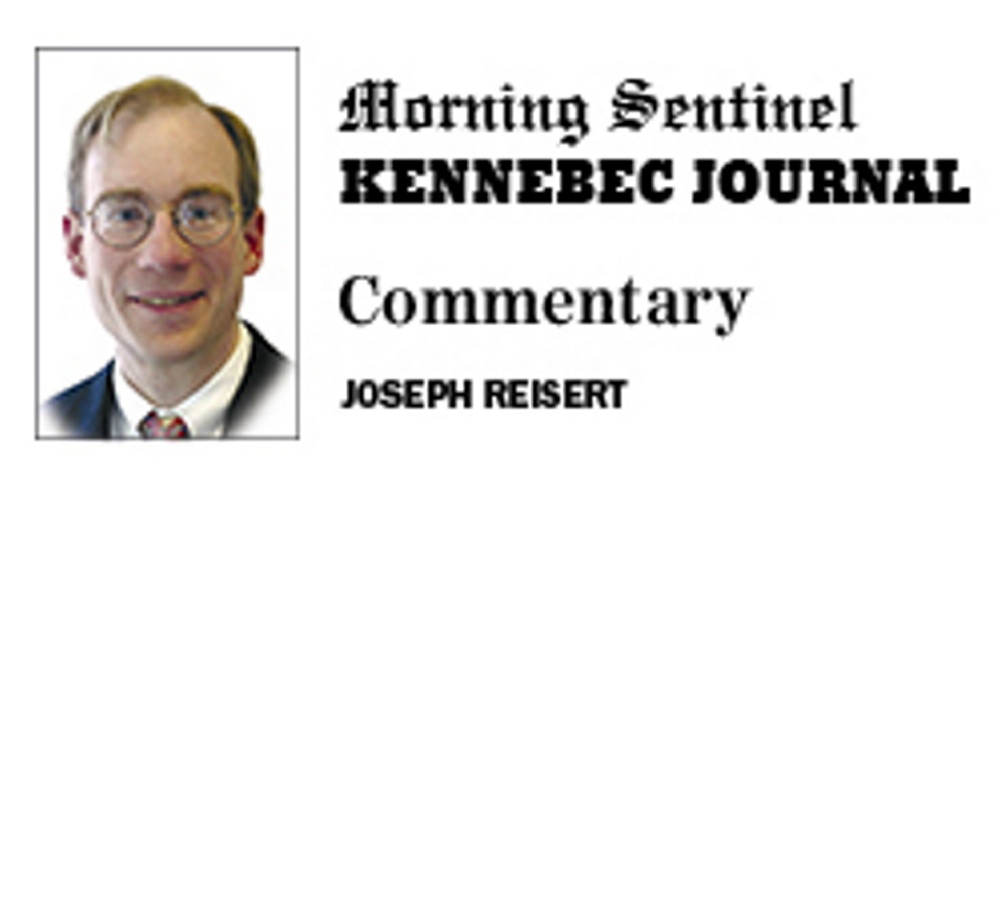At the U.S. Supreme Court on Monday, Justice Kennedy and the four progressive justices did something almost unprecedented: they agreed with President George W. Bush’s view of presidential power — a view that is now also held by President Obama. Conversely, the chief justice, and Justices Alito and Scalia, who generally supported Bush, dissented on Monday, siding with the Congress instead.
That convenient partisan alignment may have been just a coincidence, but the most persuasive analysis in Monday’s case came from Justice Thomas, who held that the majority reached the right result but for the wrong reason.
The case involved a small provision that Congress included in a giant bill, which gives American citizens born in Jerusalem the option of having their passports designate their birthplace as “Jerusalem, Israel.”
President Bush signed the omnibus bill into law, but in a “signing statement” wrote that he planned to disregard the Jerusalem measure because it unconstitutionally infringed his authority to conduct foreign policy. (Candidate Obama objected to Bush’s use of signing statements, but President Obama has followed this one and has issued many of his own).
When Menachem Zivotofsky applied for a passport, his parents asked that their son’s place of birth be listed as Jerusalem, Israel. The government refused: the boy’s passport says only that he was born in “Jerusalem.” The Zivotofskys sued, arguing that the Constitution gives Congress the power to make laws and imposes on the president the duty to “faithfully execute” them.
Like his predecessor, Obama argues that the Jerusalem provision unconstitutionally interferes with his power to conduct foreign policy. Specifically, he says that only the president has the right to extend official diplomatic recognition to other countries, and that because this power resides exclusively in the president, he may exercise this power, even against the wishes of the Congress.
Writing for the majority, Justice Kennedy substantially agreed with the Obama administration. He wrote that because the Constitution imposes on the president the duty to “receive Ambassadors,” and because receiving an ambassador is widely seen as tantamount to recognizing the soveriegnty of the country he represents, this obligation implies that the president has the exlusive right to extend or withhold diplomatic recognition.
As the dissenters rightly point out, this argument is strained. It turns a presidential duty into a power, it ignores the historical evidence that presidents have generally worked with Congress when deciding which sovereigns to recognize, and it contradicts Alexander Hamilton’s analysis in the Federalist, which said the duty to receive ambassardors was a matter of “dignity” and “without consequence.”
Moreover, this holding doesn’t even resolve the case, because putting “Jerusalem, Israel” on a passport does not constitute diplomatic recognition. To reach his conclusion, Justice Kennedy has to stretch the recognition power to include an additional right not to issue any official communication that foreigners might misconstrue as statements about the official policy of the United States.
The dissenters, however, also err. They insist that Congress’ powers “to regulate commerce… with foreign nations” and “to establish an uniform rule of naturalization” imply that Congress has exclusive authority to regulate passports.
But it is a very long stretch to infer a plenary power over passports from the powers to regulate commerce and to naturalize citizens, not to mention that the State Department issued passports for decades before Congress ever passed its first law on the subject.
Justice Thomas, correctly, rejects both approaches. By contrast with the dissenters, he finds that Congress has no general “passport power,” but holds that it may regulate passports only in ways that are directly entailed by its exercise of its enumerated powers.
By contrast with the majority, he does not base his decision on the constitutional requirement that the president “shall receive ambassadors.”
Instead, he looks to the first line of Article II, which states that “the executive power shall be vested” in the president. Unlike Article I, which makes clear that Congress has only the powers “herein granted”, Article II gives to the president all powers that are executive in their nature.
The power to issue passports is, in his view, just such an executive power. Because passports are an official communication from the executive branch, Congress has no power to compel the president to use them to communicate any message he doesn’t want to send. If Obama doesn’t want to say “Jerusalem, Israel”, that’s his call. Case closed.
And Thomas’s opinion has one additional merit: it proves that his view of executive power doesn’t change with the occupant of the White House.
Joseph R. Reisert is associate professor of American constitutional law and chairman of the department of government at Colby College in Waterville.
Send questions/comments to the editors.



Success. Please wait for the page to reload. If the page does not reload within 5 seconds, please refresh the page.
Enter your email and password to access comments.
Hi, to comment on stories you must . This profile is in addition to your subscription and website login.
Already have a commenting profile? .
Invalid username/password.
Please check your email to confirm and complete your registration.
Only subscribers are eligible to post comments. Please subscribe or login first for digital access. Here’s why.
Use the form below to reset your password. When you've submitted your account email, we will send an email with a reset code.